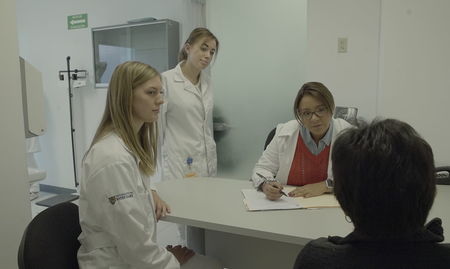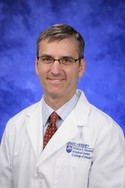The Major
Why prepare for medical school through Arts and Letters?

The process of getting into medical school—and the type of student medical schools are looking to recruit—has evolved rapidly. The Medical College Admissions Test (MCAT) has increased its focus on social sciences, such as psychology and sociology. Medical schools are now increasingly seeking applicants with a broad, liberal arts education who have developed the interpersonal skills necessary for a successful career in medicine.
Regardless of major, 84% of Notre Dame pre-med graduates are admitted to medical school—that’s twice the national average. As an Arts and Letters pre-health supplementary major, you can pursue any major in the College while acquiring the education, skills, and experience you need to get into—and succeed in—graduate school for medicine and other health professions.
Center for Career Development reports show that Arts and Letters pre-health students from majors as diverse as anthropology, classics, English, French, history, psychology, sociology, Spanish, studio art, and theology went on to medical school at Brown University, Emory University, George Washington University, Loyola University, Michigan State University, the University of Illinois, the University of Iowa, the University of Texas, and many others, as well as optometry, dental, physical therapy, nursing, and public health programs.
How will it prepare you?
The Arts and Letters pre-health program combines at least 49 hours of science in conjunction with more than 70 hours of classes in humanities, social sciences, and the arts. These courses will help prepare you for the new MCAT, which includes sections on behavioral and social sciences and critical analysis and reasoning.
Core science coursework, also necessary preparation for the MCAT, comprises 40 hours of the supplementary major; the other 9 hours are made of upper-level science electives. Students can select electives to meet the requirements for any of the health professions graduate schools, such as medical, dental, veterinary, physical therapy, physician assistant, nursing, or optometry school.
In no way does a background in the humanities mean you can’t be successful in the medical field. In fact, I think the analytical, critical thinking, and communications skills I picked up as an English major really enhanced my ability to work across disciplines.
-Jeff Miller ’89, M.D. and professor at Penn State University’s Milton S. Hershey Medical Center
